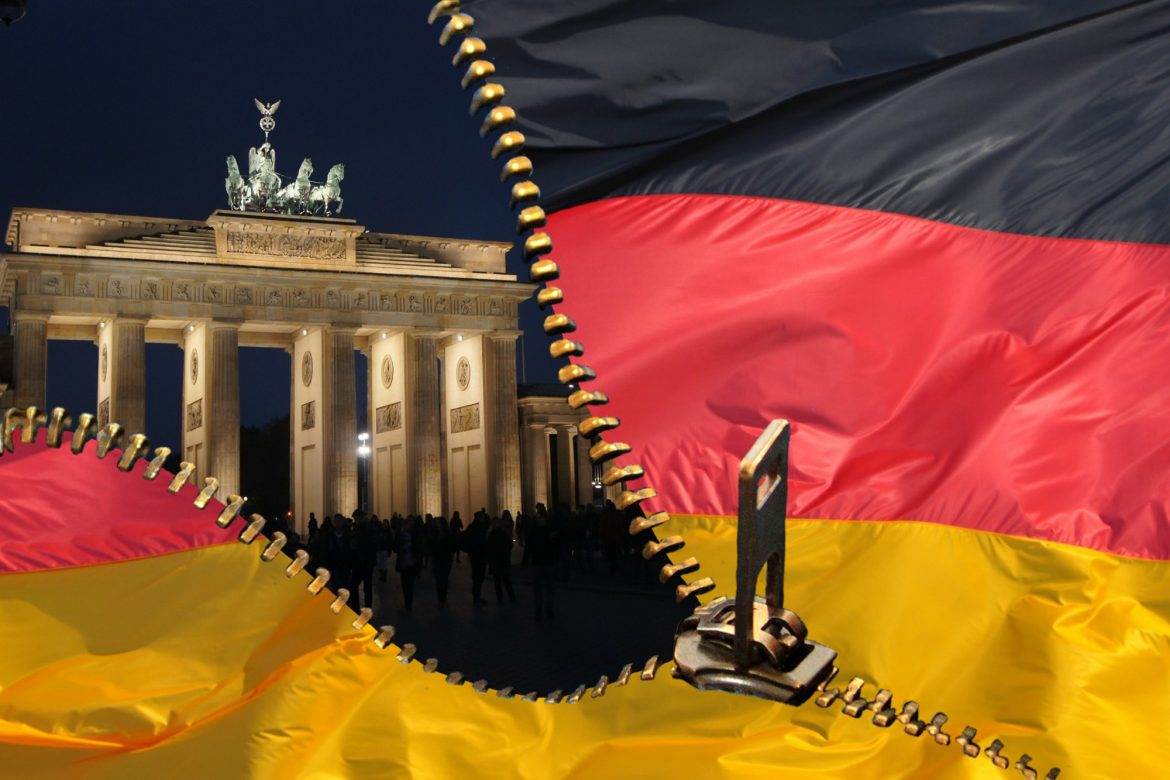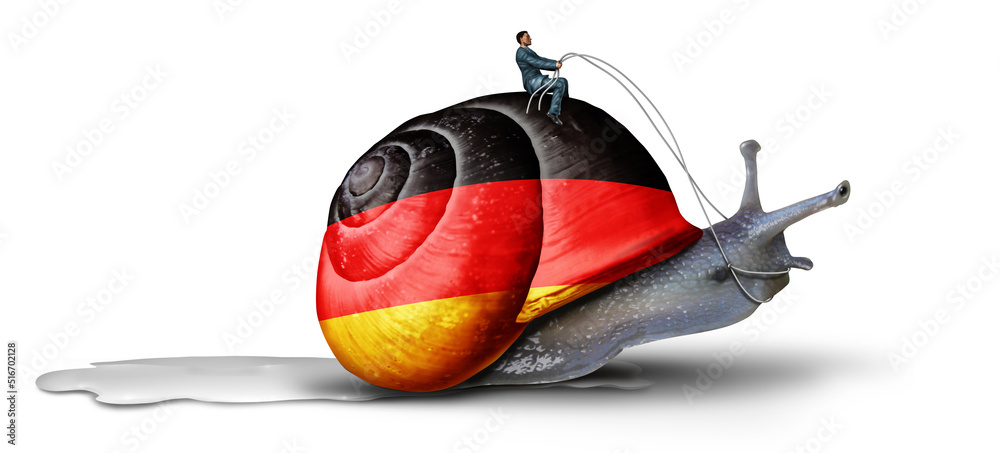Who will save Europe or Ribbentrop-Molotov Pact shadow
POLITICS 27 September 2023 - 10:29
| Sadyar Aliyev Caliber.Az |
Today, fierce information, hybrid, and heated wars are taking place at the crossroads of Asia and Europe, with major players fighting for natural resources and political influence. Below we will try to consider what the situation is in a united Europe and whether it can adequately respond to at least regional challenges. Which country is capable of becoming an effective leader of the European Union amid the weakening role of France? This article will try to answer this question.
Let's start with the fact that the population of Europe today is more than 500 million people, which is approximately 9% of the world's population. The population is rapidly aging. The largest political entity in Europe is the European Union, which unites 27 countries with different levels of development and cultures, but shares European values - the rule of law, cultural and racial equality, a common market, etc. Founded in 1992, this organization developed quite successfully during the peaceful period of its existence, when Europe suddenly grew with 15 newly formed CIS states and the countries of Eastern Europe liberated from socialist oppression (Warsaw pact members). Among the latter, Germany stands out, which was divided into the GDR and the Federal Republic of Germany following the Potsdam Conference. Despite the monstrous destruction of infrastructure and industry and an acute shortage of workers, West Germany, thanks to the Marshall Plan, was able to quickly restore its economy and establish industrial production. Similar to this scenario, East Germany, under the patronage of the USSR, also quickly recovered from the wounds inflicted by the war. These two German states existed in different ideological spaces until 1990, when, as a result of the collapse of the USSR and the bloc of socialist states, the country united and later became a member of the EU. It is important to note that in Europe, historically, Germany has always been considered a warlike country and the instigator of many military conflicts in the Old World. That is why one of the conditions for the unification of Germany put forward by the United States was joining the European Union with a common currency and market.

In the opinion of the United States and its allies, this would prevent Germany from sliding down the path of militarization. As mentioned earlier, this scheme worked perfectly under peaceful conditions, when Russia was trying to integrate into the Western (European) community, but after Russia began to invade Ukraine, the system began to fail. First of all, this was expressed in the total dependence of the European Union and especially Germany on Russian oil and gas. Not only the population, affected by the increase in gas prices, was under threat, but also industry, where the rise in the price of energy raw materials caused an increase in the price of manufactured products and a deterioration in their competitiveness on world markets. In addition to this, as a result of the imposed sanctions, German industry was suddenly left without the traditional, capacious Russian market and, as a result, there was a sharp decline in the sale of cars, machine tools, and other goods. Germany was undoubtedly the economic leader of the European Union, but France was still the political and military leader. The sole possessor of nuclear weapons in the European Union, France has consistently taken a leadership role in matters relating to defense and the EU's relations with the outside world. However, the Ukrainian crisis has very clearly exposed France's weakness as the EU's political leader. Failed attempts to intensify France's participation in the conflicts in Ukraine and Garabagh, the rapid ousting from Africa, where Russian PMCs and Chinese soft power ambassadors have recently been active, presented France as a completely spineless party, unable to influence serious global processes. This exposed Europe's complete defenselessness in the face of challenges coming from both the East and the West. Today the United States reigns supreme in Northern Europe, where the Baltic countries and Scandinavia are traditionally committed to transatlantic values and place their security hopes mainly on the United States. If there had been a direct Russian attack on Europe and if Ukraine had not stood in its way, there is no doubt that without NATO’s participation, the Russians would have ruled Paris as they did in the 19th century.

There is no doubt that not only the global South, led by China and Russia but also old Europe itself, which has its own ambitions and plans, objects to the dictates of the United States. The constant blackmail of the United States, reminding Europe of its vulnerability in the event of direct aggression, has become quite tired of the latter, however, to get rid of this dependence, Europe first of all lacks military power, especially after the loss of Britain, which very clearly confirmed its reputation as an unsinkable US aircraft carrier by leaving the EU. The times of military exploits of the French Republic have long since sunk into the past and the figure of a new Napoleon does not loom on the horizon, so the theme of a change in the military-political leader in the Old World is emerging with increasing force. So who can take on this role? It is obvious that there is and cannot be an alternative to Germany in the current conditions. Being one of the largest countries in Europe, along with France and Ukraine, Germany has the most serious scientific and industrial potential. Let us repeat once again, Germany’s belligerence at one time, on the recommendation of the United States and allies in Europe, was limited by the latter’s membership in NATO and the EU, and until today the Germans have not shown increased aggressiveness when it comes to military conflicts, limiting themselves to the participation of their military in peacekeeping operations. However, nothing lasts forever, and in Germany, the spirit of revanchism and militarism is slowly but surely being revived, especially against the backdrop of what is happening in Ukraine. Today, European countries are on the side of Ukraine and act in concert with the United States and Great Britain. But everything can change overnight. The worsening economic situation throughout Europe and even in such developed countries as Germany and France, the shortage of energy resources, aggravated by the onslaught of environmental activists, could lead to tectonic shifts in European foreign policy. Only Germany can lead these shifts. Weak and uncharismatic France will fade into the shadows, and a revived militarized Germany may well lead the uprising of old Europe against its overseas boss. This seems completely incredible, but the very fact that Putin was able to unite countries with a multi-billion-dollar population and good economic indicators in an anti-American outburst already speaks volumes. The temptation to end the world hegemon is extremely strong and it seems that the anti-US coalition may have an unexpected supporter in Germany. What speaks in favor of such a seemingly fantastic theory? Let's list all the factors that can contribute to this. Firstly, this is an increasingly worsening situation for the German economy. German products are rapidly losing competitiveness and this trend is intensifying. Apart from over-reliance on exports, problems of the energy transition, or an aging population, there is another disease of the German economy that has so far been masked by good economic performance: insufficient investment. Secondly, the weakening role of France has actually weakened the EU and made it an easily manipulated structure. And finally, Russia’s many years of efforts to introduce agents of influence into German structures have begun to bear fruit. German Russian-speaking political scientists, MPs, and cultural figures glorifying Russian foreign policy and even the Special Military Operation (SVO) do not leave the screens of Russian TV channels. Moreover, as the English Times writes – «One in twelve Germans hold extremist right-wing views that include trivialising the Nazis, a poll has found».

Thus, the dictates of the United States in foreign policy in relation to the conflict in Ukraine, the deteriorating state of the economies of the EU countries, as well as direct threats of military invasion voiced by Russia, can lead to tectonic shifts in the foreign policy of the European Union. Namely, to rapprochement with Russia (especially from the German side) and the renunciation of sanctions and military assistance to Ukraine. As a result of such a Pact European Union will secure itself from Russia's further military expansion, will return to the Russian market and obtain cheap Russian hydrocarbons. Ukraine's security in this case will rely on mainly the US and its allies in Northern and Eastern Europe - mainly Poland, Scandinavia, and the Baltic states. We can only guess what will be the US's reaction to such a tectonic shift, but it surely will be the highest threat to the US's dominance not only in Europe but on the global scale as well.
Caliber.Az
|
1
|
High time to declare US ambassador persona non grata Mr. Libby, take your suitcase and leave for Washington
05 May 2024 - 12:06
|
|
2
|
Factory burst into flames in Germany PHOTO / VIDEO
03 May 2024 - 16:19
|
|
3
|
Profiling Archbishop Bagrat Galstanyan – Tavush region protest leader
03 May 2024 - 17:20
|
|
4
|
Will Azerbaijan's diplomatic efforts bring change? UNESCO's crucial crossroad
03 May 2024 - 17:13
|
|
5
|
What to expect from China’s stance on Palestine? A long track of mediation
04 May 2024 - 10:28
|
Ukraine marks its third Easter at war under fire from Russian drones
05 May 2024 - 22:00
Chinese president visiting Europe for first time in five years
goodwill tour to be uphill struggle05 May 2024 - 20:03
Hamas, Hezbollah launch about 30 missiles at Israel
05 May 2024 - 18:02
EU at risk of "implosion" as far-right seeks scapegoats, minister warns
05 May 2024 - 17:45
West destabilising situation in Georgia
Security, impunity for (foreign) agents05 May 2024 - 17:28
FT: Russia plotting sabotage across Europe
05 May 2024 - 17:23
Finland plans to build explosives factory
05 May 2024 - 17:04
Ukraine requests emergency energy from Poland, Romania
05 May 2024 - 16:43
Netanyahu government votes to close Al Jazeera channel in Israel
05 May 2024 - 16:24
UN assistant secretary-general to visit Armenia's border with Azerbaijan
05 May 2024 - 16:05
NATO's secret red lines: Alliance prepared to act if third party intervenes in Ukraine conflict
05 May 2024 - 15:46
Albanian-Udi community to celebrate Easter in ancestors’ churches in Karabakh
05 May 2024 - 15:29
Media: Still no deal in Israel-Hamas truce talks
Cairo meeting results05 May 2024 - 15:13
Armenian priests, peddling false narratives
Unmasking revanchist rhetoric05 May 2024 - 14:57
US official: Defence pact with Saudi Arabia impossible without Israel deal
05 May 2024 - 14:54
Bondholders to push Ukraine to resume debt payments
05 May 2024 - 14:36
Cuba abolishes visa regime for Chinese citizens
05 May 2024 - 14:17
S. Korea to participate in US-led cyber exercise this week
05 May 2024 - 13:58
French president favours continued dialogue with Russia amid tensions in Ukraine
05 May 2024 - 13:40
Three New York synagogues, Brooklyn Museum targeted in bomb threats
False alarm05 May 2024 - 13:21
Pro-Palestine rallies sweep across European cities amid Gaza onslaught
05 May 2024 - 13:02
Azerbaijan, Bangladesh discuss opportunities for cooperation in healthcare
PHOTO05 May 2024 - 12:44
Azerbaijan, Gambia cancel visa regime for diplomatic passport holders
PHOTO05 May 2024 - 12:27
France prepares for cyberattacks from Russia during Paris Olympic Games
05 May 2024 - 12:08
High time to declare US ambassador persona non grata
Mr. Libby, take your suitcase and leave for Washington05 May 2024 - 12:06
Hamas reveals plans for negotiations with Israel
05 May 2024 - 11:49
Azerbaijan, Morocco cancel visa regime
05 May 2024 - 11:32
Double standards and Michel's confession
Europe's hypocrisy05 May 2024 - 11:18
Russian troops take control of Ukraine's largest fortification in Krasnohorivka
05 May 2024 - 11:16
Azerbaijan, Somalia discuss issues of mutual cooperation
PHOTO05 May 2024 - 10:55
Georgia interested in cooperation on Green Corridor project, PM says
05 May 2024 - 10:39
Armenians protesting against delimitation of border with Azerbaijan reach Ijevan town
05 May 2024 - 10:18
World-renowned photojournalist plans to publish new books on his Karabakh journey
05 May 2024 - 10:01
Azerbaijani minister: Zangezur corridor to be beneficial for all countries in South Caucasus
05 May 2024 - 09:46
Azerbaijan to host 16th OIC Islamic Summit
05 May 2024 - 09:30
OIC urges Armenia to fulfill its commitments
05 May 2024 - 09:08
Bird flu outbreak in US cattle sparks fears over next global health crisis
05 May 2024 - 08:50
Senior UN official says northern Gaza is now in “full-blown famine”
05 May 2024 - 06:30
F-16 outclasses MiG-29 RAC in agility
05 May 2024 - 04:25
SEC shuts down Trump Media auditor over "massive fraud"
05 May 2024 - 02:20
